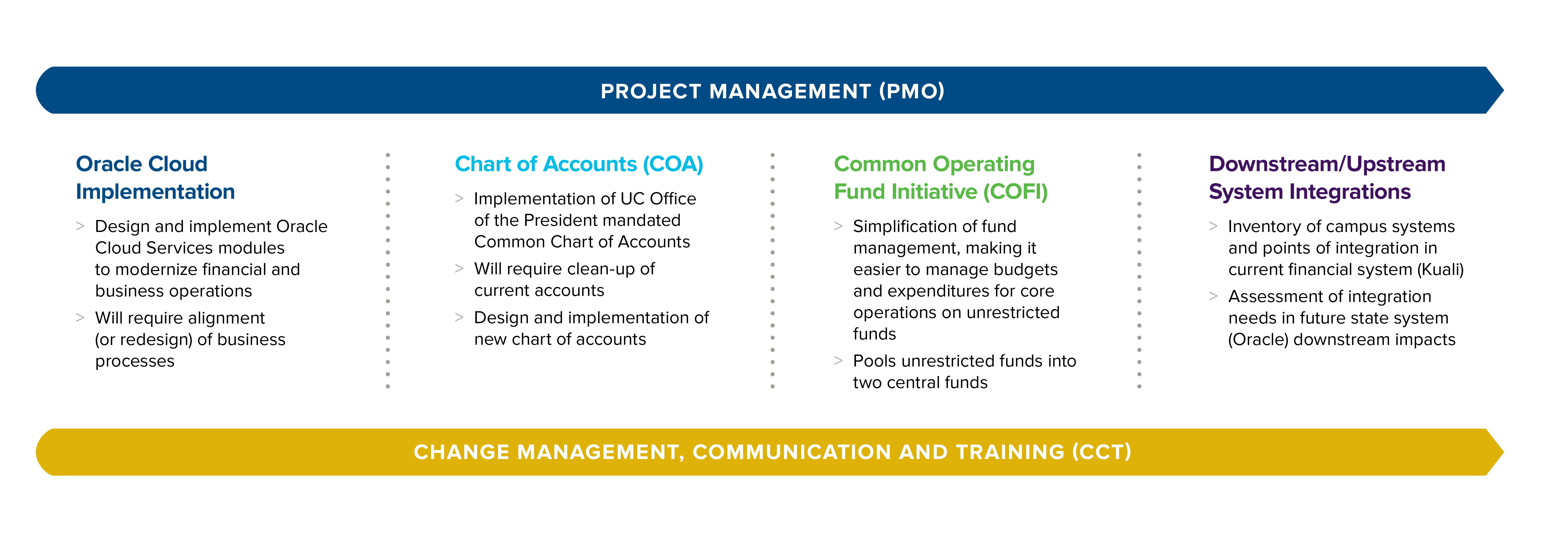Aggie Enterprise will result in changes to many of the current tools and business processes, requiring a comprehensive change management strategy to support people readiness.
Project Management and Change Management Strategy
Integrating change management with project management increases the likelihood of achieving the results and outcomes of the initiative.

Project Management and Change Management Strategy (PDF) | Text Alternative
Change Management, Communications and Training Team
The Change, Communications and Training (CCT) team helps prepare, equip and support individuals throughout the UC Davis community to successfully navigate these changes.
Partnering closely with the Project Management Office (PMO), the CCT team integrates change management and project management strategies in support of the various Aggie Enterprise work streams. This integrated approach helps guide each person through a smooth transition to the future state and empower them to use the new tools and business processes in their day-to-day work.
Why is change management important?
Change management serves as the framework to support and understand the change and its effect on UC Davis and its employees.
Effective change management provides the following benefits:
- It fosters cooperation, collaboration and communication.
- It provides individuals the support to raise concerns and provide feedback.
- It provides thoughtful, efficient communications, factoring in the audience, sender, key message, and communication methods.
- It helps to maintain morale and productivity during the transition.
- It helps to minimize resistance to change.
- It helps minimize stress, anxiety, fear, and change fatigue.
Our Change Management Approach: Prosci ADKAR® Model
UC Davis has selected the Prosci change management methodology due to its research-based structure, and its people-focused individual change model, ADKAR.
ADKAR represents the five elements that an individual needs to achieve in order to successfully navigate change: Awareness, Desire, Knowledge, Ability and Reinforcement. The foundation of this model is respect for people, acknowledging that organizational change can only happen when individuals change.
- A - Awareness feels like, “I understand why . . ."
- D - Desire feels like, “I have decided to . . ."
- K - Knowledge feels like, “I know how to . . .”
- A - Ability feels like, “I am able to . . .”
- R - Reinforcement feels like, “I will continue to . . .”
Change management activities have been carefully planned to support successful adoption of the changes that Aggie Enterprise brings to UC Davis. Through a mixture of communications, sponsorship and training activities, our change management plans provide a framework for the organizational change strategy, always keeping in mind the ADKAR individual change model. Visit Office of Business Transformation to learn more.
